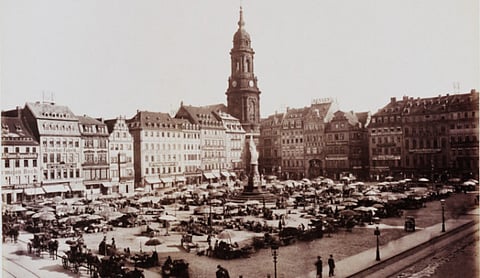Taking over the market
The success of the country’s export industry can be attributed to an elite tier of midsize companies, better known as the hidden champions

Germany has been the world’s leading exporter in ten of the past 25 years, and 2011 marked another record year. Exports, not domestic demand, sustain Germany’s affluence and low unemployment rates. Politicians, economists and executives from all over the world — including the Middle East — constantly want to know the secret behind Germany’s success and what they can learn from it.
So why is Germany so successful in exports? There is no simple answer to that question because there is no single cause. What’s clear, however, is that large corporations alone are not responsible for Germany’s unrivalled export success. The US has four times as many Fortune Global 500 companies as Germany; Japan has twice as many, and even France has more. Yet the export strength of these countries is far below Germany’s. Last year, German per capita exports were $18,863 (about Dh69,300), France’s were $8,784, Japan’s were $6,258 and the US achieved $4,859. Even if you adjust for differences in population, this doesn’t affect the picture.
The hidden champions
At the root of Germany’s continuing export success are midsize companies, or more precisely, an elite tier known as the hidden champions. The term hidden champions has been coined by Professor Hermann Simon, Founder and Chairman of Simon-Kucher & Partners. “This elite tier of companies in Germany is a true anomaly in the world. These companies alone contribute over a quarter of all German exports. Per one million inhabitants, Germany has 16 hidden champions, France has 1.1, the US 1.2 and Japan 1.7,” observes Professor Simon, who has been studying the international success of hidden champions for several decades.
Why are there so many hidden champions in Germany? There are several reasons. These companies have risen — and continue to rise — from a complex set of influences, some geopolitical, others rooted in family values, and still others in technological traditions stretching back centuries. Among many factors, two main pillars that stand out are specialisation and internationalisation.
Attention to detail
Reflecting the maxim of ‘do the small things a little better than everyone else’, hidden champions have internalised that they can only sustain successfully if they concentrate on close specialisation in products and know-how. This focused approach allows them to innovate products faster and remain ahead of slower moving large corporates and foreign copycats.
The second major success factor is internationalisation — only globalisation makes a niche market large. It enables a company to achieve sufficient economies of scale. But internationalisation does not only mean selling products all over the world.
In their globalisation process, hidden champions prefer to do things themselves. They work with their own subsidiaries and maintain close relationships with their customers. Compared to large corporations, their proximity to customers is five times higher and their top managers are involved more closely in day-to-day business.
These two key success factors are highly relevant for companies in the UAE. How can they specialise and drive product innovations, while expanding their international footprint? There is, for sure, no one-size-fits-all solution, but the approach of German hidden champions gives some food for thought on the road to success.
— The writer is MD, Simon-Kucher & Partners’ Middle East Office, Dubai. He can be reached at Lovrenc.Kessler@simon-kucher.com
Sign up for the Daily Briefing
Get the latest news and updates straight to your inbox



